In 2019, our first year of touring, we simply cycled through Lithuania, Latvia and Estonia. Now we give them a second chance. This time we arrive in Tallinn from the north, like so many others, by water, ferry, duty-free shopping or cruise ship. The old town, all dressed up and touristy. Off to the tourist information center. We meet one of the North Cape cyclists who was with us at the city caming in Helsinki. It is a small world.
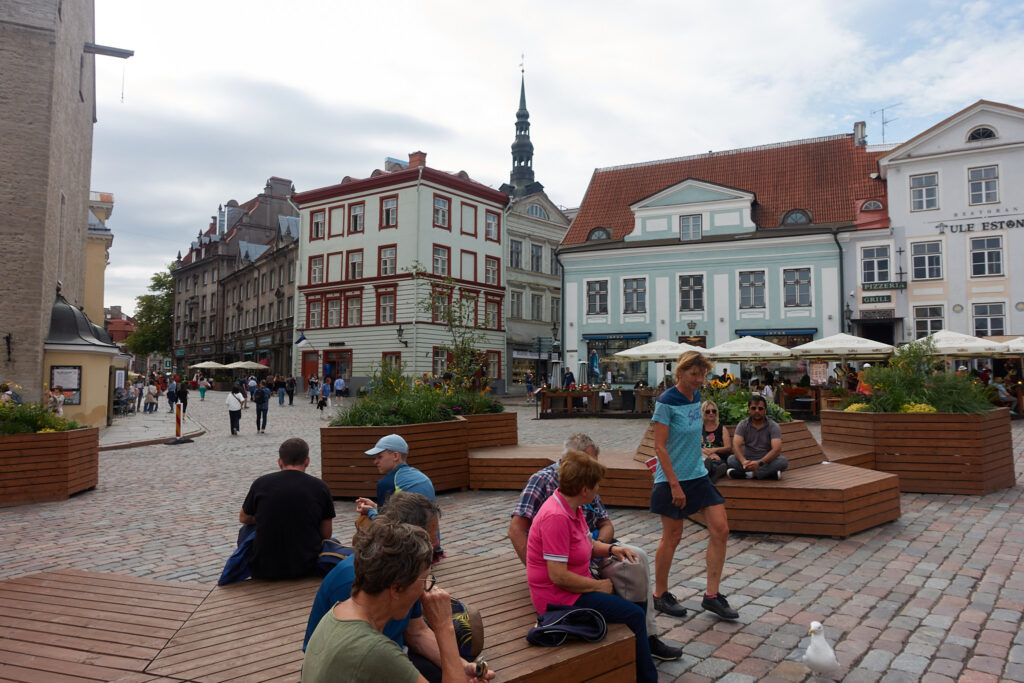
It is sixty kilometers to the bivouac site we have chosen for today. We quickly leave the old town and head southeast. Housing estates with no charm are lined up in a row. Playgrounds in between, well frequented by families with children. Everything is very sober. People live here to work. This is what it looks like, 35 years after reunification, twenty years after joining the EU. Wow!
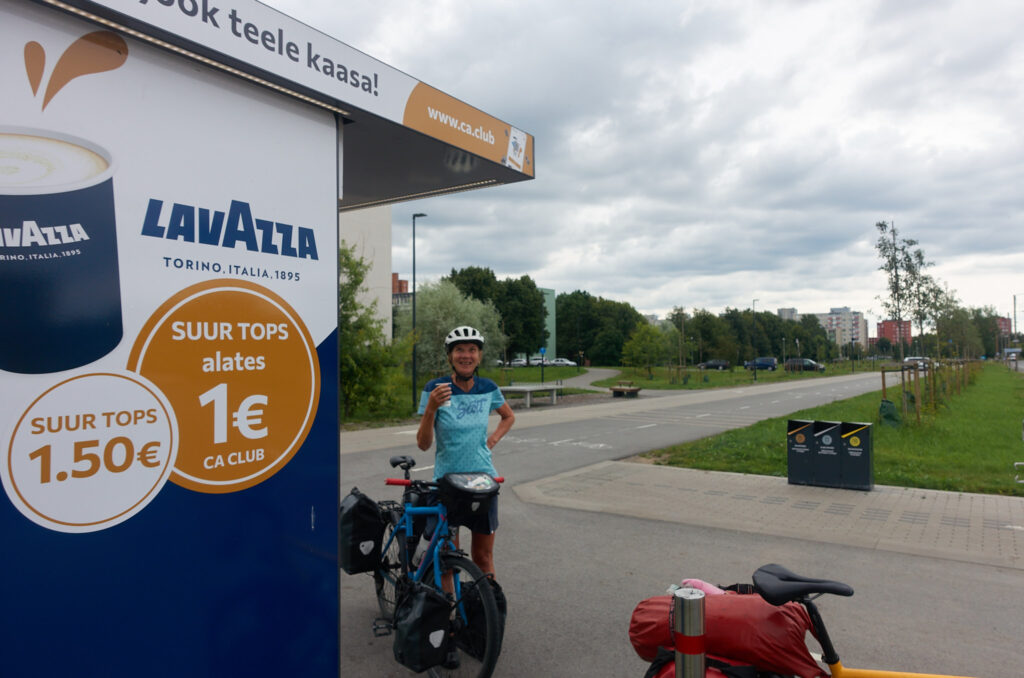
Estonia has invested a lot in infrastructure – with the help of the EU: each municipality has smart sports facilities, playgrounds and a beach volleyball court. However, people do not enjoy life here.
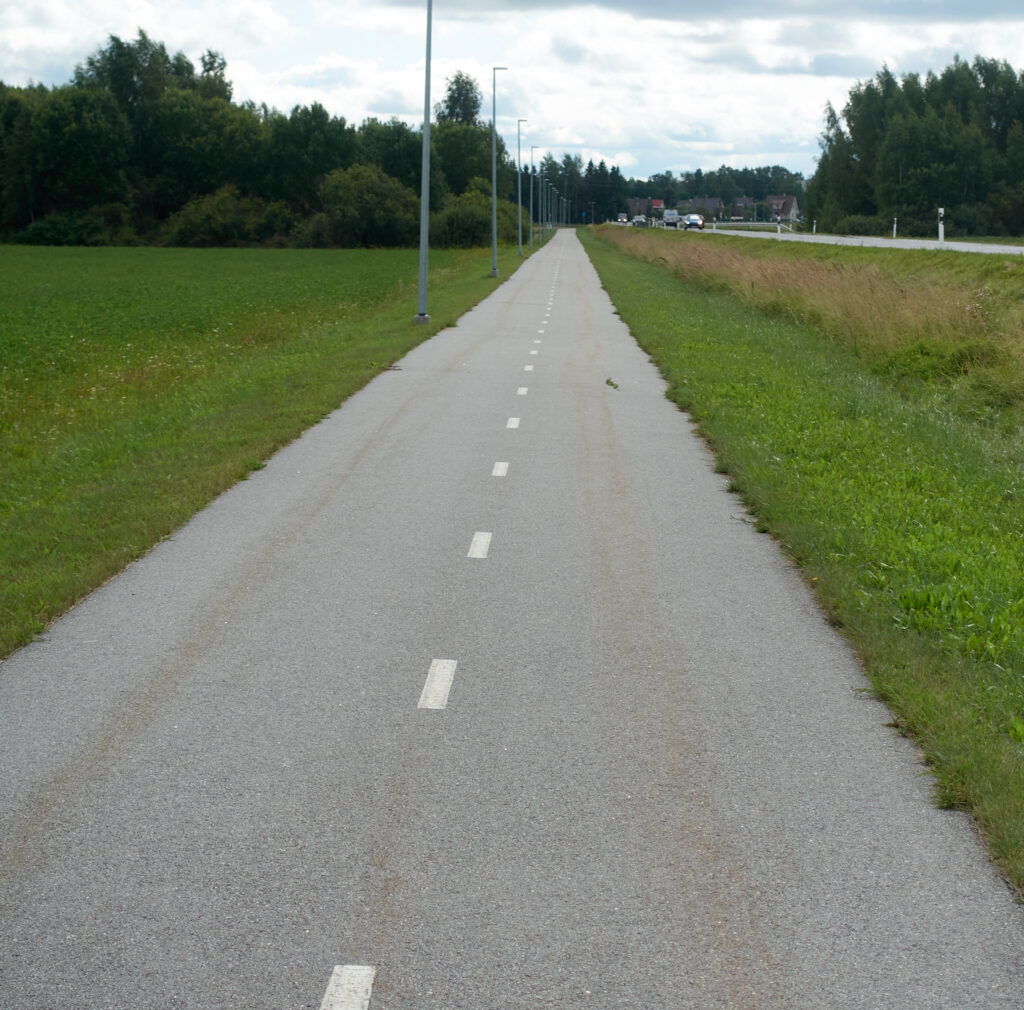
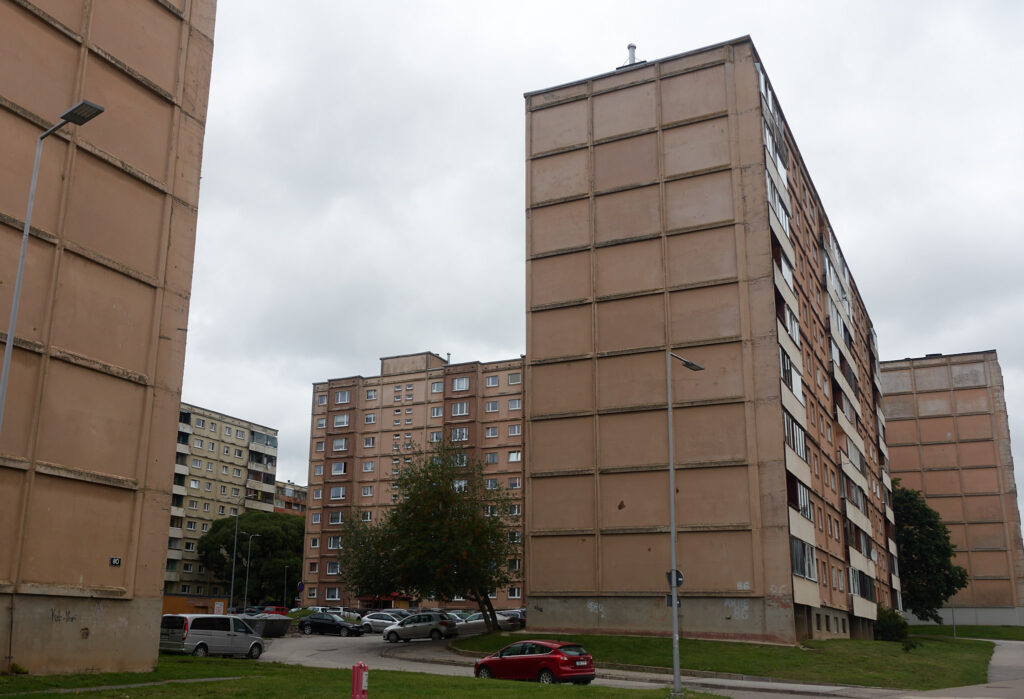
One road, always straight ahead, a cycle path parallel to it. We buy groceries halfway along the route, our first shopping trip in Estonia. Bread and beer are cheap. Apart from that, we now have to get to grips with a new language. At some point we enter the forest. It is no longer quite so bleak, gray and dusty.
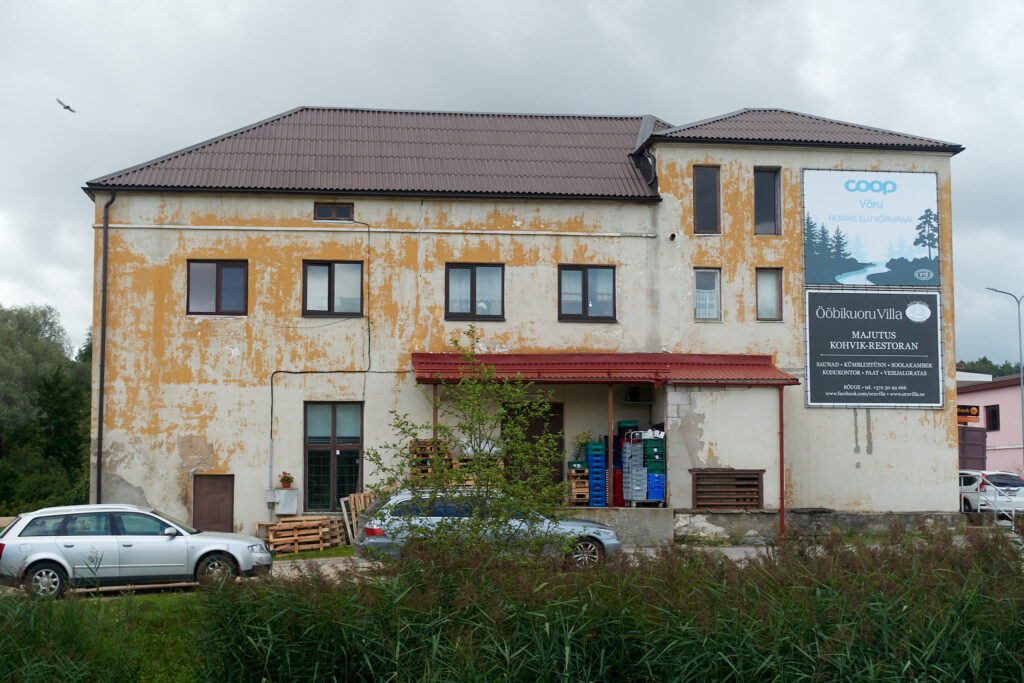
We have been ridden a little out of paradise, or have left it voluntarily. The forest looks beautiful in the evening light and we reach our bivouac site: the Estonian form of everyone’s right: shelter, fire pit, firewood and toilet, far away from civilization.
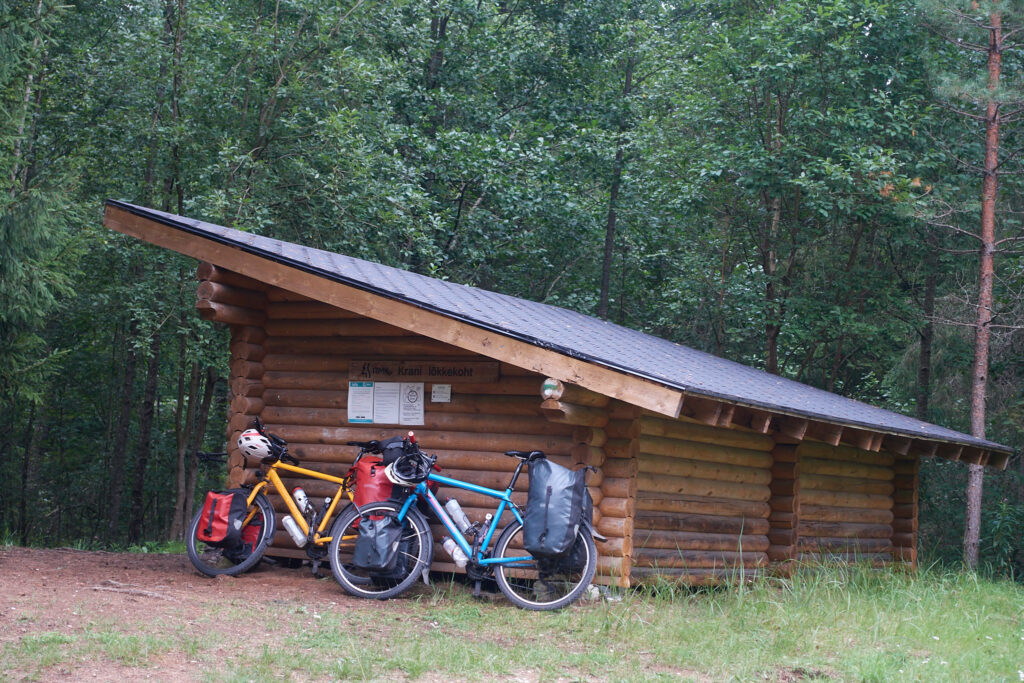

There is a hiking trail here, at least there are hiking signs on the trees. Everything is perfectly flat, straight paths, very monotonous. After a hearty breakfast, we continue the next morning. After eighty kilometers, Astrid falls asleep several times and we have to take a short break. Twenty kilometers to go until the Coke and the necessary energy boost. Shopping after another twenty kilometers. We think we will be through the country in two days. That is it for the second chance. After 125 kilometers, we stop at an Orthodox church. One of the few sights so far.
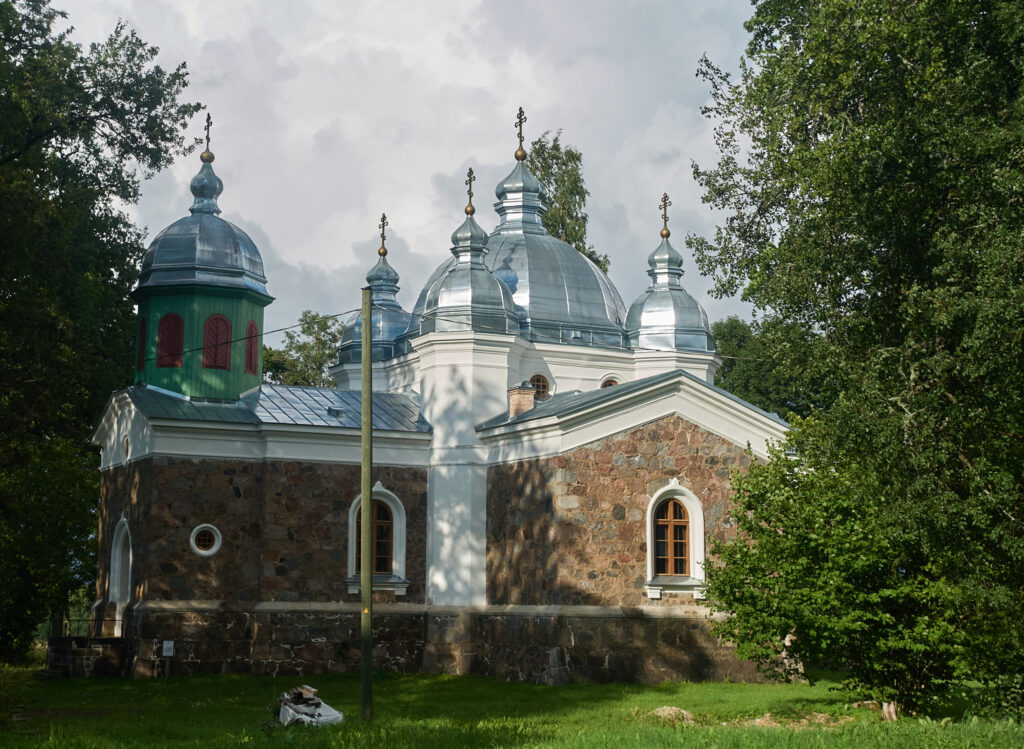
A car stops. Sven steps out. He helps to renovate the church. We quickly strike up a conversation. He wants to show us the church and tells us a lot. We learn that Tartu, this year’s European Capital of Culture, has a lot of activities and events going on. If he is not here, we would have been invited to his sauna. Never mind.
Our destination for today, Camping Kirivanna, is a dream, situated on a freshwater lake that looks as big as the Baltic Sea. We can have a sauna here too. But first we enjoy our spot on the beach with a wonderfully dry, warm wind and an almost kitschy sunset.
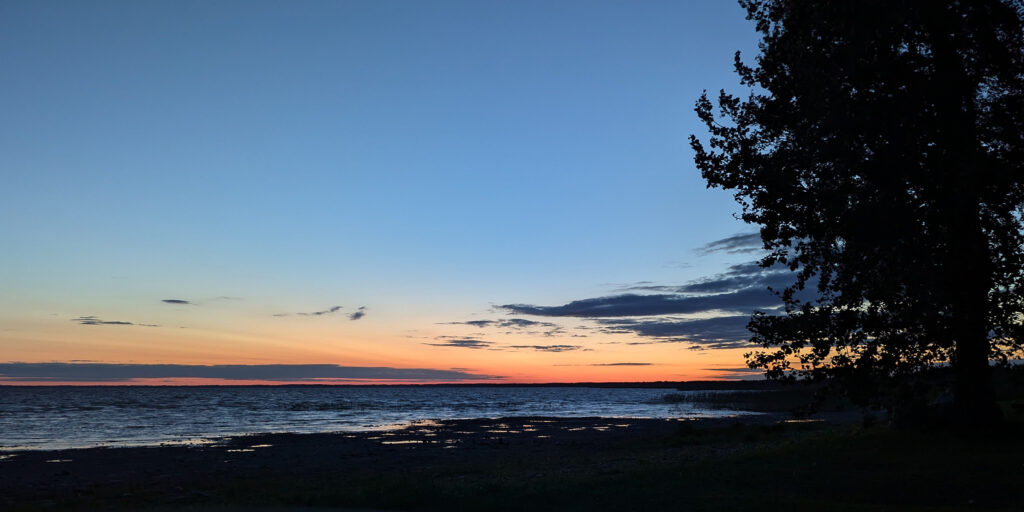
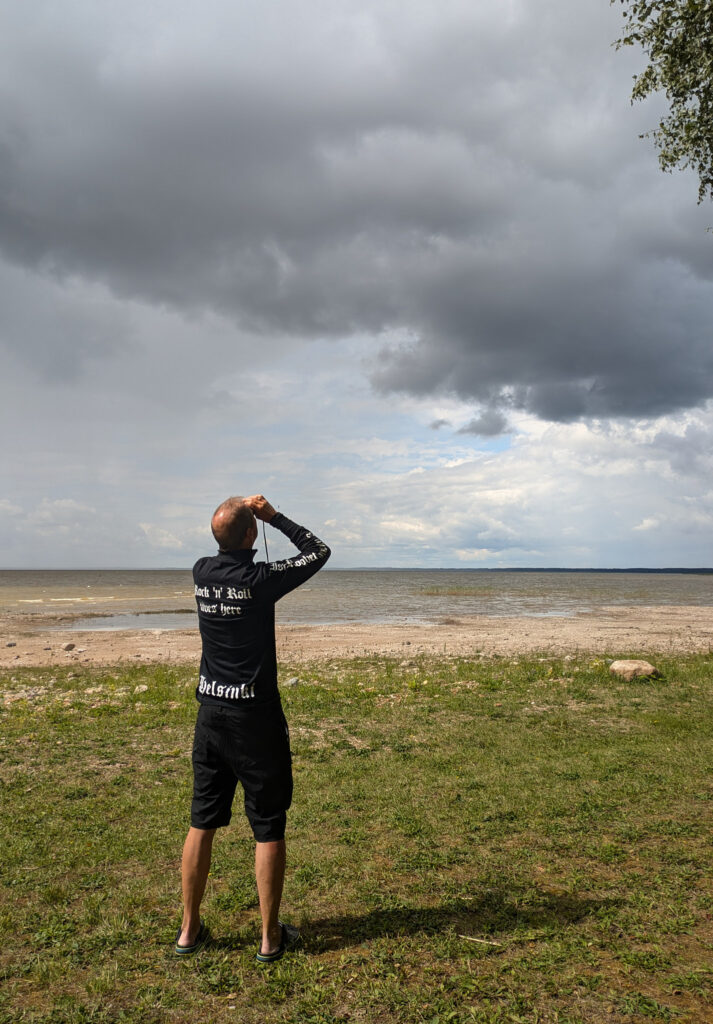
The storm starts at night. The tall birch trees rustle. Our tent is crouched in a hollow on the beach. Tomorrow we are off to Tartu. We have booked a hostel and visit Artur at the observatory. He works here during the semester break and is Sven’s son.
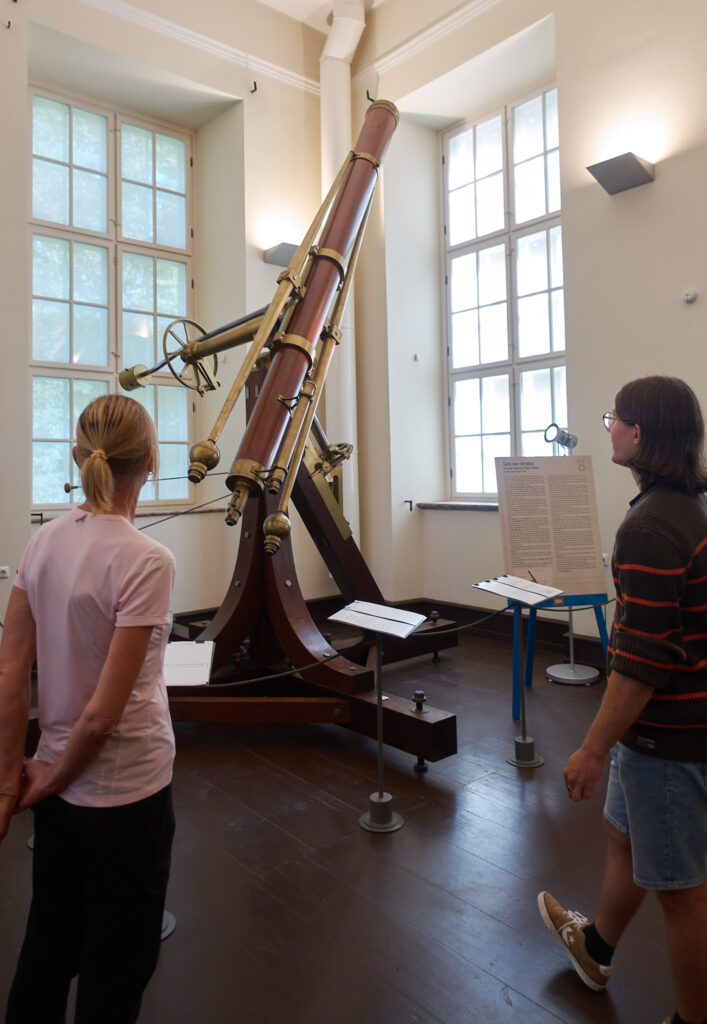
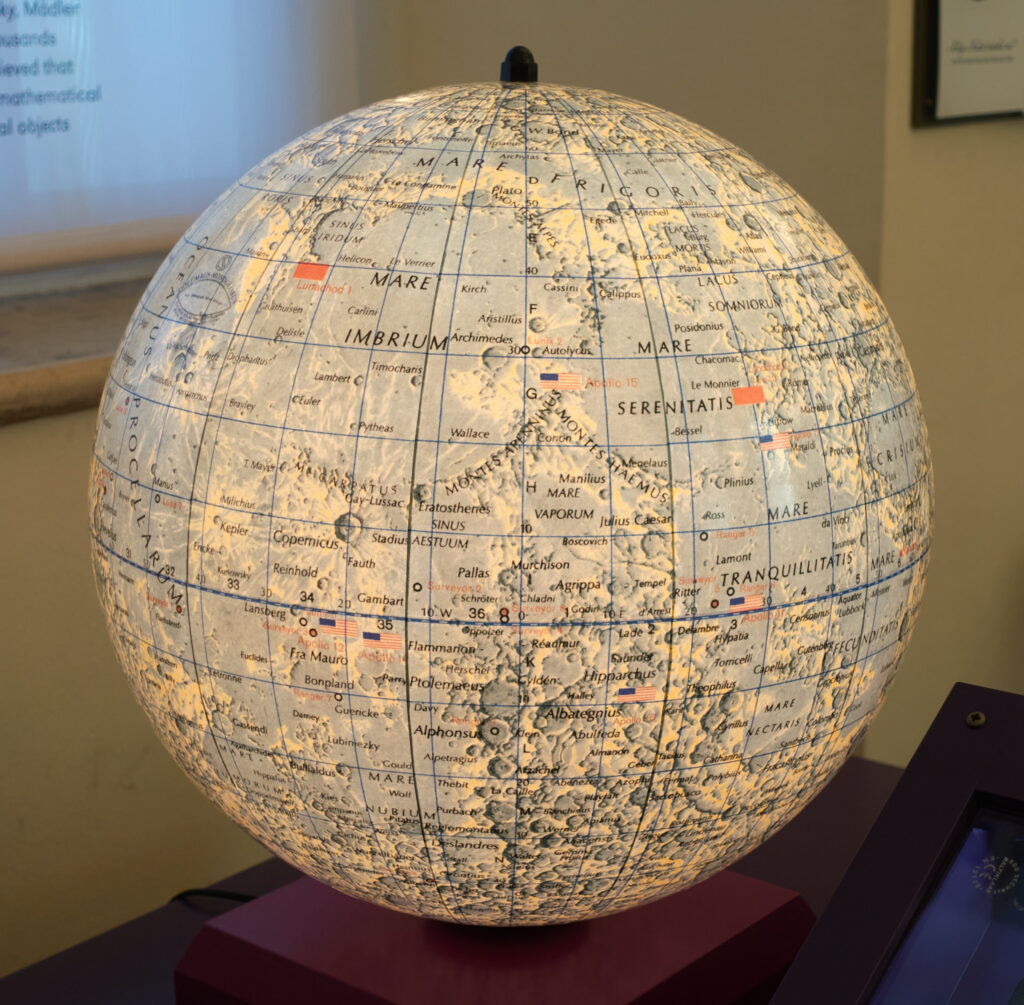
We learn all about surveying the earth and moon, geodesy, and Artur learns what he wants to know about touring cycling. Next year, he plans to cycle the route surveyed by the Baltic German astronomer Friedrich Georg Wilhelm Struve (1793-1864) to Hammerfest in Norway. His enthusiasm for the scientists here is inspiring. We are already looking forward to seeing Artur’s photo in Hammerfest.
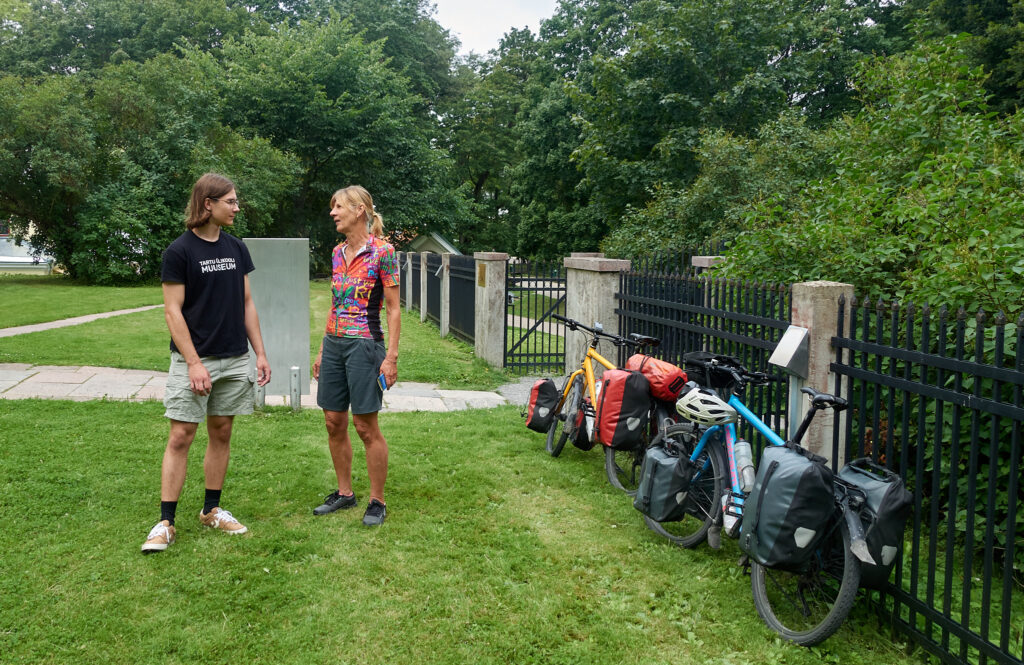

Tartu is a successful visit if we had not lost a pedal, four grips and an air pump the next morning, despite having a safe place to store them in the hostel. It is the first time in five years and 45,000 km that we have had anything stolen. Now we are taking better care of our belongings again. In Lillemäe we have homemade blueberry slices with cream and coffee on the roadside. That was Estonia.
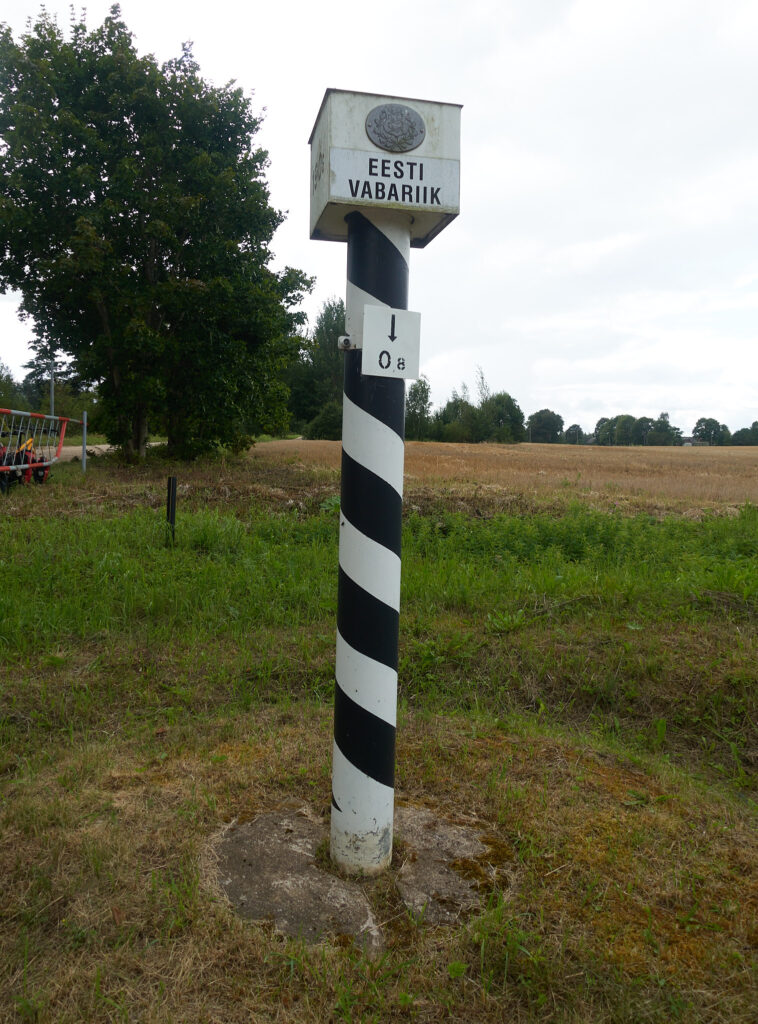
Wild camping is allowed in Latvia. We want to try it again. The marked picnic spots are not exactly inviting and littered. So we carry on to the next campsite. After 125 kilometers, we drag our bikes over the tracks again, hoping that the campsite marked on Openstreetmap really exists. Camping Baili is like a youth hostel complete with ski station and ski jump.
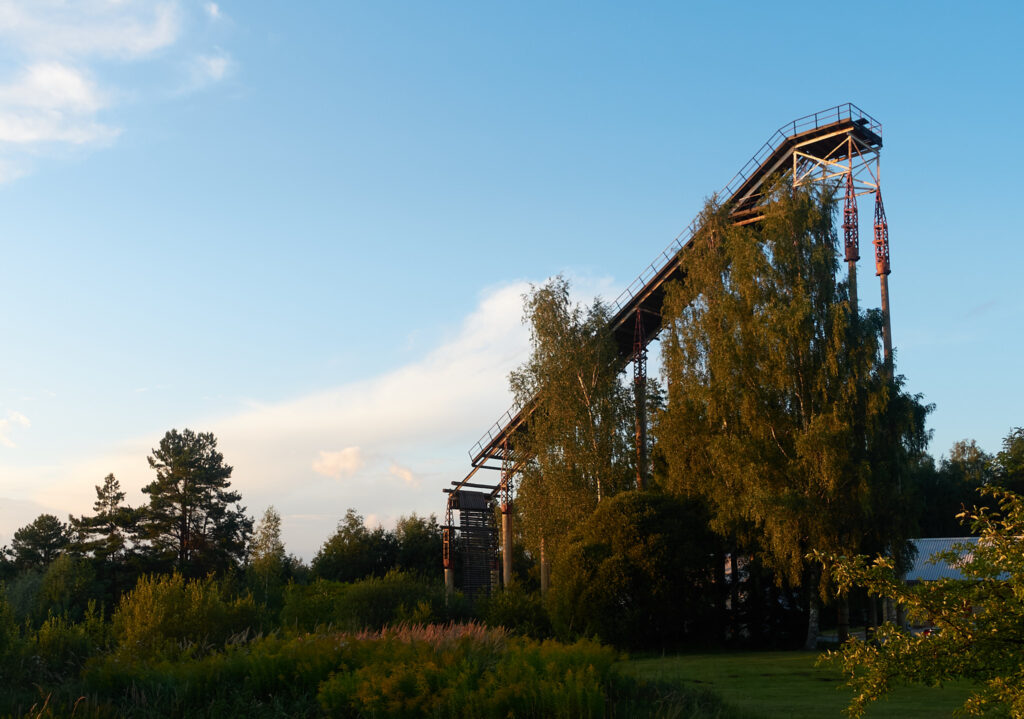

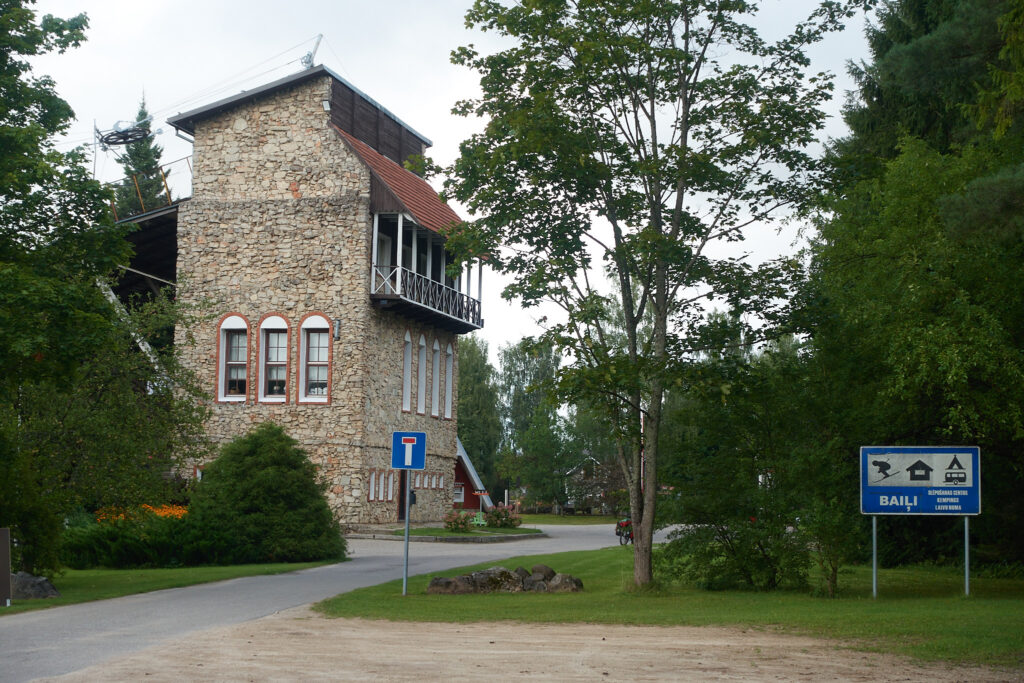
We are not quite sure how the winter season is going here. Snow cannons, ski slope vehicles, everything is still there. Definitely very exciting, special and highly recommended.
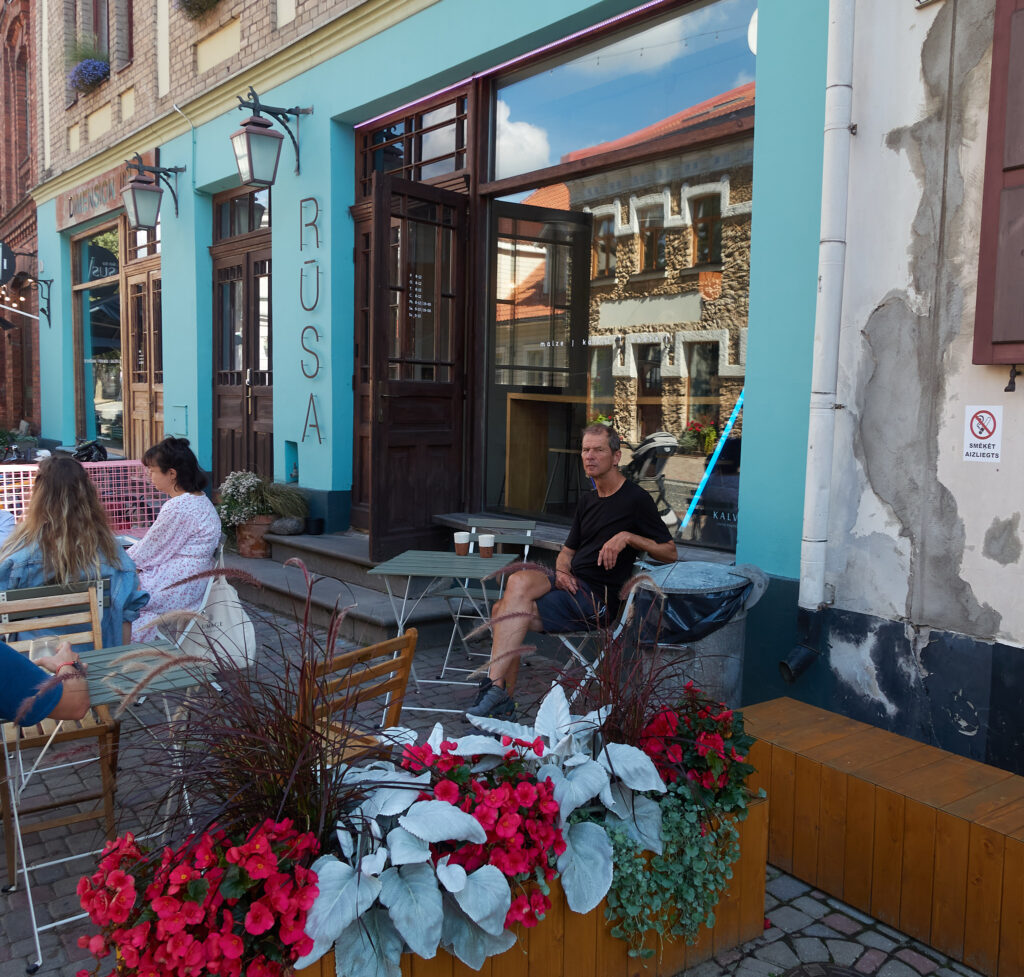

Conquering the Gauja National Park. With the MTB map from the local tourist office. It shows enough tracks and trails for a whole vacation. We start the day from our beautiful base station at Camping Zargakalns. Once through the forests and on the gravel roads without luggage. We call it Latvian Switzerland. A look at Wikipedia tells us that it is just a little further south. Along the way, we take in the numerous sights.
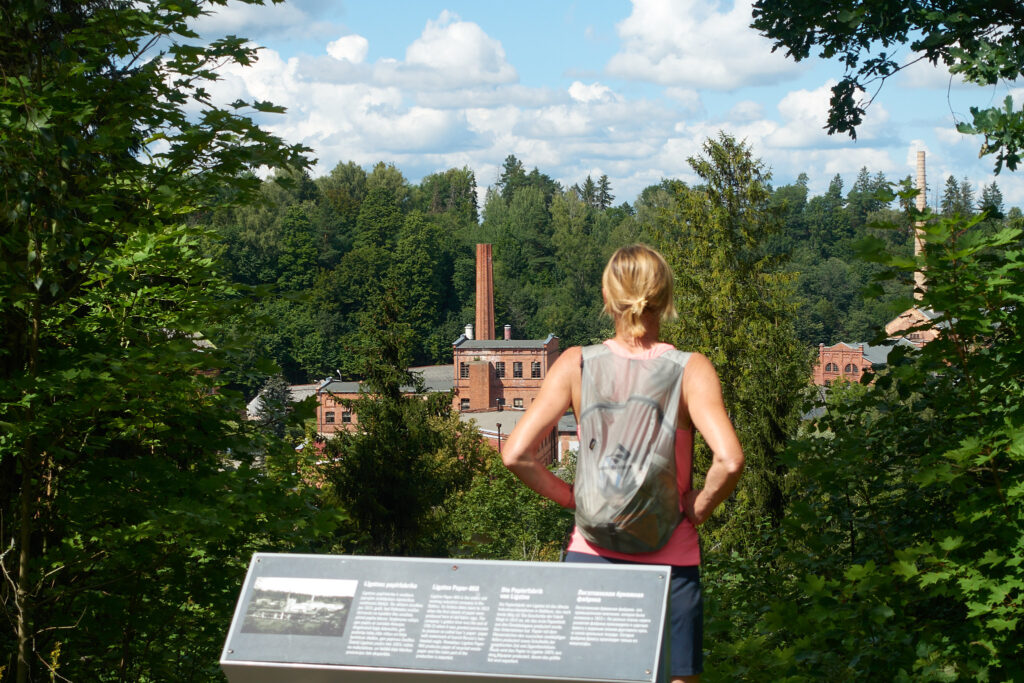
The next morning we continue to the southern part, this time with luggage. After many rain-free days and three glorious starry nights, we are surprised when it starts to rain at midday, followed by lightning and then buckets of rain. When we reach our campsite three kilometers south of Sigulda, it is covered in deep puddles in some places.
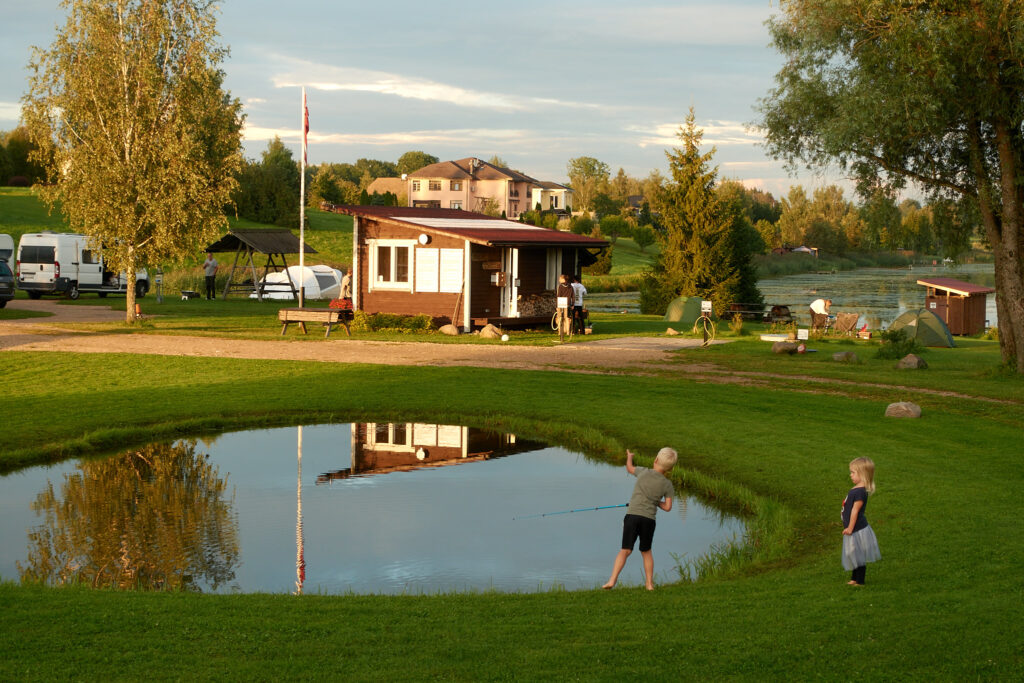
We take the ageing train from Sigulda to Riga, with new and comfortable interior. As it rarely travels more than fifty kilometers per hour and has countless stops, it is a panoramic journey, ideal for studying the area and relaxing. We spend a day walking through Riga. There are 700 well-preserved Art Nouveau houses here, interspersed with many green parks with water. A visit to Sanct Peter’s Church with its history of Latvia and the Baltic States and a climb up the tower is highly recommended. We take a break in the old ladies’ café at the Orthodox church. Before the train takes us home, we eat a pizza and tiramisu at the brilliant restaurant Bella Napoli. The overall ambience, hosts, food and furnishings make us feel like we are in Italy for an hour.
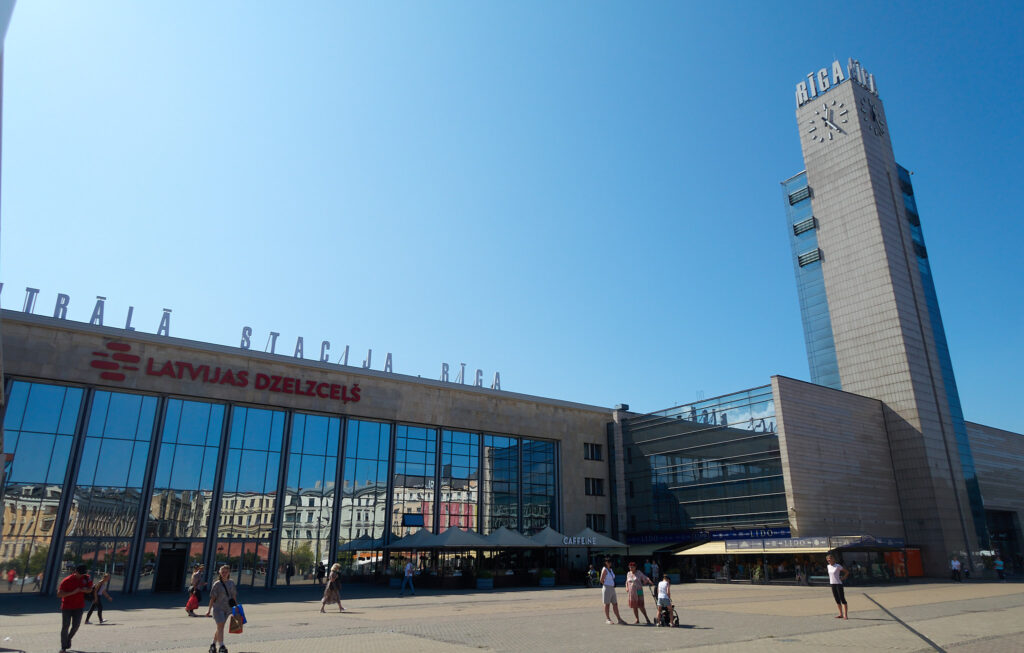
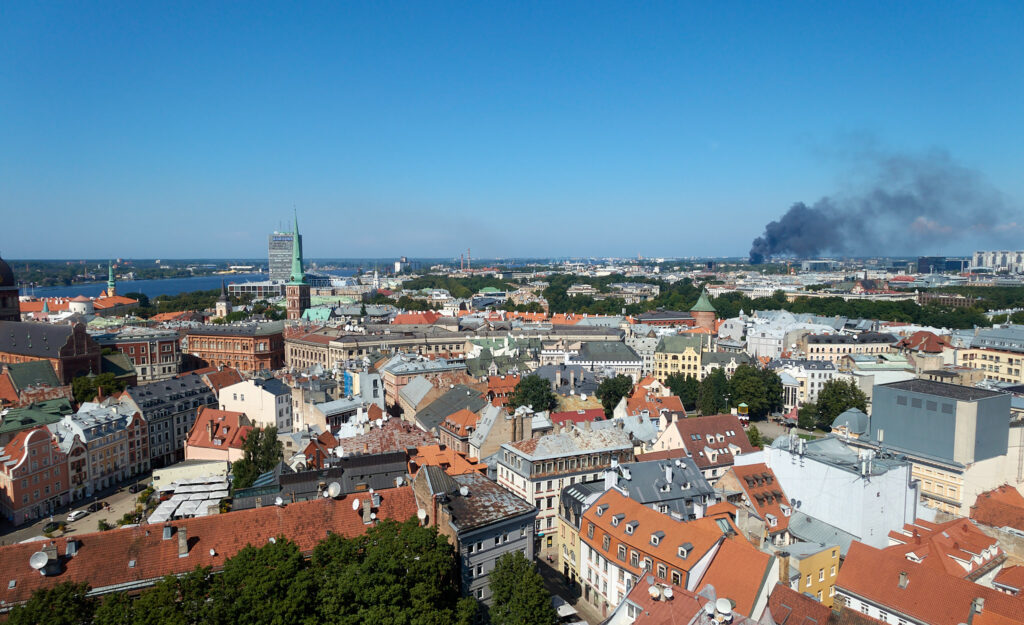
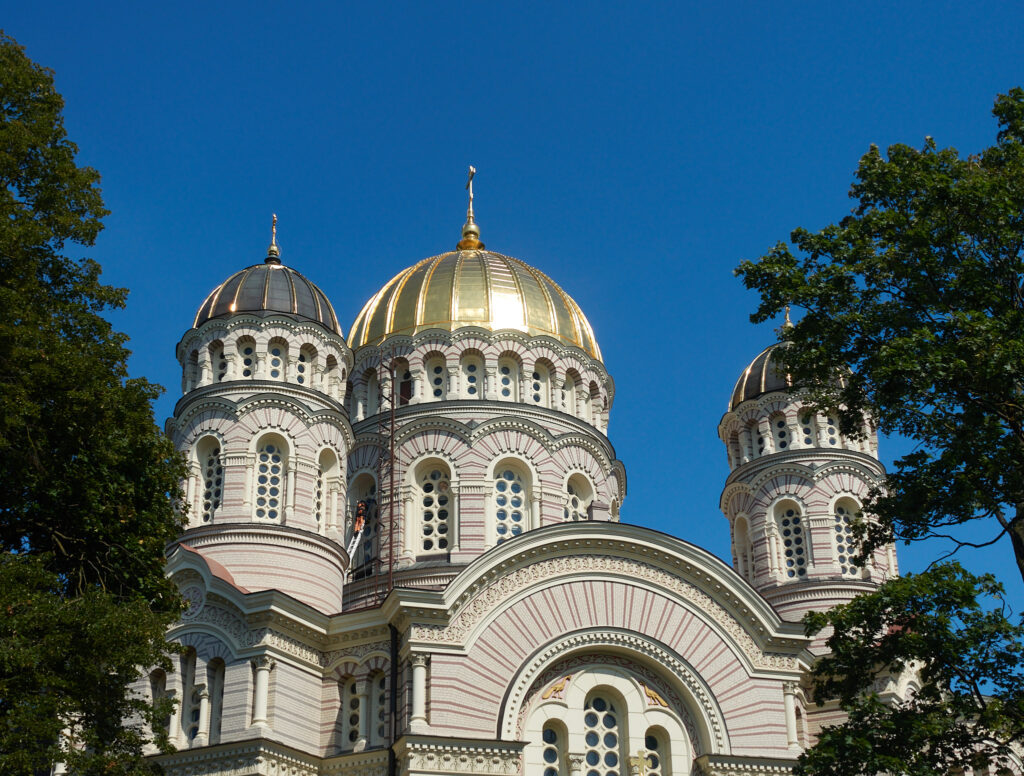
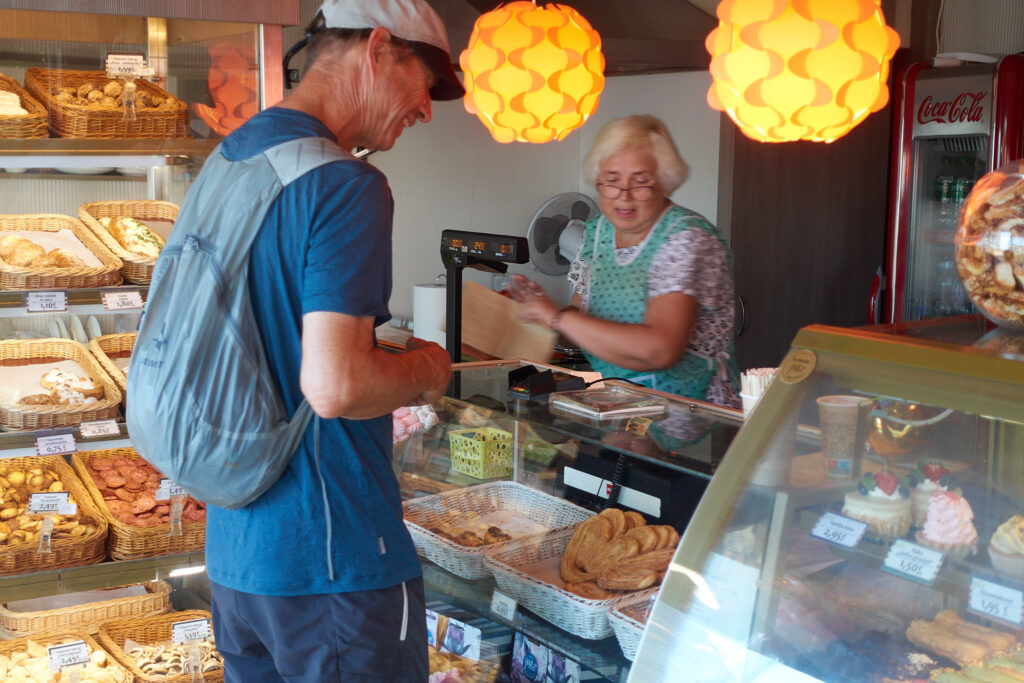
As a contrasting program, there is a beer in the creative quarter where the Latvian chocolate factory Laima from 1870 is also located. Our chocolate consumption is immense. We eat a 200g bar every day, whether it is Freia, Marabu or Laima.
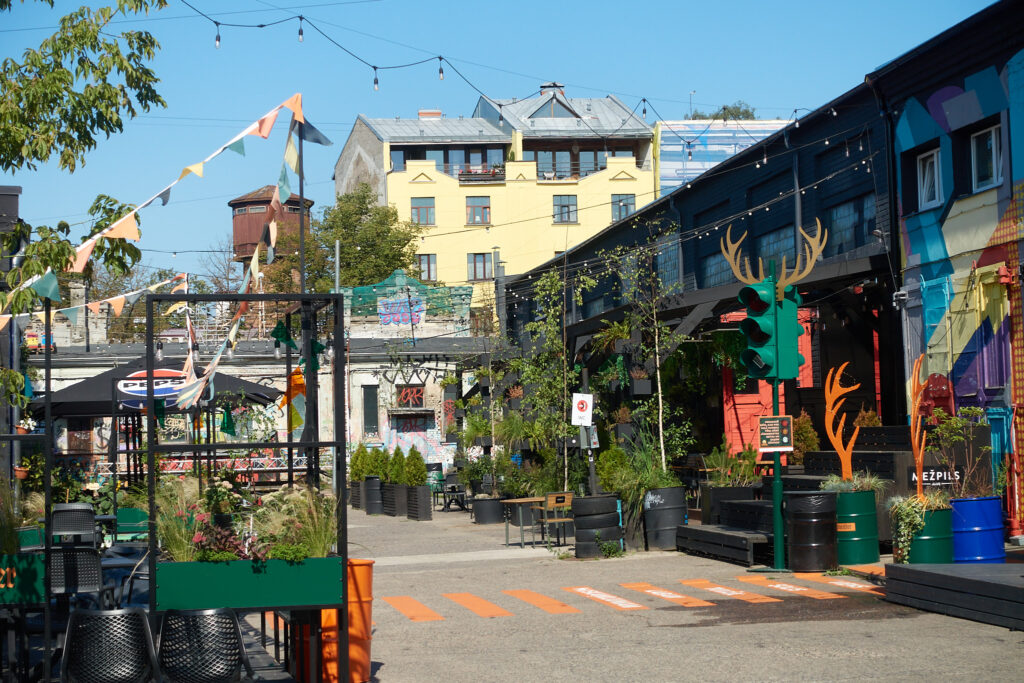
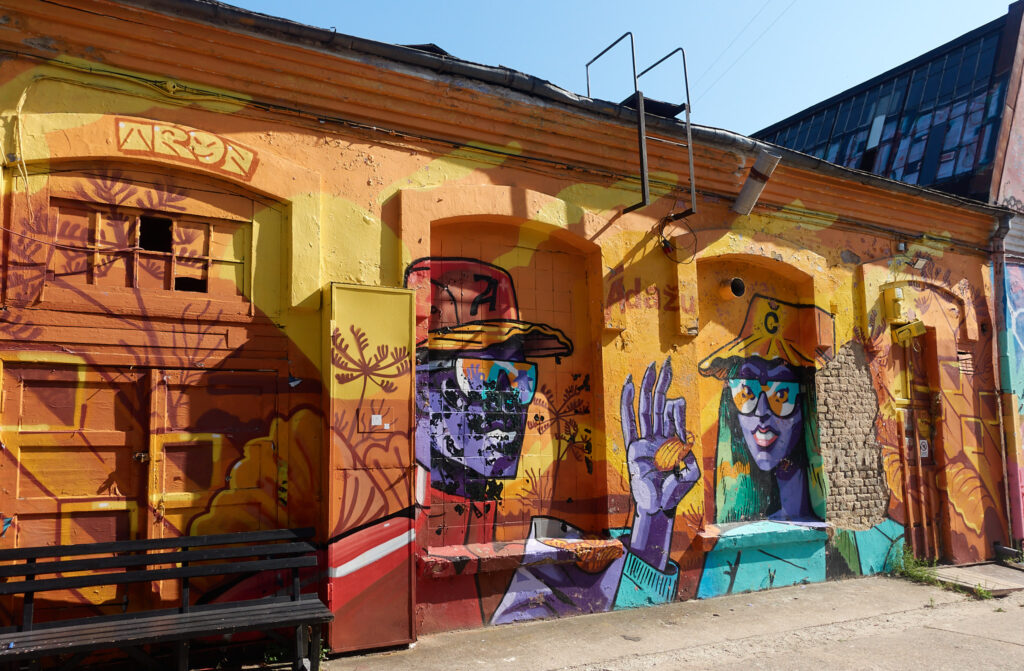
Today we entered Lithuania and left Latvia with a sense of melancholy. It is the first time we have been on a fenced campsite for months. We already miss the Scandinavian flair and the hospitable Latvians. Riga is the pearl of the Baltic and Latvia, the beautiful shell around it. The two wild rivers Gauja and Daugavas with their wide valleys are true natural beauties.
